Ride sharing services like Uber and Lyft are already generating big business for drivers and passengers alike. While one might think that the typical parameters of such a partnership wouldn’t allow for interesting conversation between those who use ride sharing and those who earn money through it, some drivers report having some fascinating chats with the people who they’ve transported.
One of them is Jeff Irlbeck, himself a real life driver for Uber and Lyft, and one of the driving forces (no pun intended) behind the comedy web series RideShare, which recently wrapped production on its third season. Co-created by Irlbeck and actor/showrunner Katie Hunter, produced and co-written by actor Ian Michael Smith, and streaming its first 2 seasons on its primary web site and Youtube channel (see additional links below), RideShare involves the pursuits of a man simply known as The Driver (played by Irlbeck).
The Driver plays host to a variety of different passengers with equally different stories, all played by many of Chicago’s best actors – including Hunter, who appears in the show’s first episode (“You’re Just Fine”). While The Driver is tasked with getting his charges to their destinations, he also serves as an armchair psychiatrist of sorts as his passengers vent to him about all that’s happening in their lives. Indeed, as each episode illustrates, those talks are sure to bring about incredibly entertaining outcomes.

Jeff Irlbeck plays “The Driver” in the acclaimed improv comedy series RideShare.
As referenced above, Irlbeck has had experience driving for two of the most well-known ride sharing services in the world (Uber and Lyft). Of course, that experience gave him the chance to meet some very interesting people during his travels.
“My experience driving for Uber and Lyft was very similar to what you see in every episode! I always enjoyed talking to people, and most people (I hope) enjoyed their ride a bit more in talking to me,” Irlbeck says. “Honestly, talking with strangers helps the rides go by a lot faster, and (makes) my work day a lot more fun.”
Irlbeck’s chats with his passengers have generated a lot of memories. In fact, the last two episodes of RideShare’s first season were based on such conversations. Yet, as Smith explains, the series examines a diverse set of issues that we all deal with in adulthood. “The stories were written by Katie and myself, and constructed profiles that lent themselves to themes we were curious about: fidelity in longterm relationships, social justice warriors, etc.”. (Full disclosure: Smith appeared in the first episode of my web series, THE LATE, LATE NEWS.)
The passengers portrayed in RideShare add greater depth to its second season. “Jeff has a lot of really crazy Lyft/Uber stories, but as we got into season two, we realized that it wasn’t so much the stories that were interesting – it was the characters,” responds Hunter, who’s also used Lyft and Uber many times in the past. “Anyone can jump in a car with a crazy story, but what gives our show heart is that you really care about each passenger. That’s also what distinguishes us from other shows about Lyft/Uber — because there are a few.”
Making those characters multi-faceted and complex, and putting them in situations that challenge what viewers commonly believe, is the most important goal that RideShare’s producers aim to achieve. “We’re not interested in telling ‘easy’ stories,” Hunter adds. “We’re looking for the complexities that make the viewer feel uncomfortable, or like someone that they would normally hate, or hate someone whose opinions they agree with.”

Elisabeth Del Toro stars in RideShare’s second season premiere, titled “Patience”.
That objective is demonstrated in RideShare’s season 2 premiere, titled “Patience”. “Creating a perfect social justice warrior (played by Elisabeth del Toro) and putting her in a car with Jeff just to lecture him wouldn’t be interesting to us,” explains Hunter.
“Creating a flawed person who is on the right track but hasn’t got it quite figured out yet (is) interesting. We want to challenge our audiences, and we trust and respect our audience too much to show them two-dimensional people.”
The connection felt between RideShare’s viewers and its on-screen players is strong. Irlbeck, Hunter and Smith all play vital roles in the success of that connection. “We try to write characters (and cast actors) that the viewers can really learn to love and care about,” Hunter says. “They’re not perfect, but their humanity makes them endearing. That’s helped a lot by Jeff too, who is a super compassionate listener for all the characters. I wish I had more Uber/Lyft drivers like Jeff!”
While Irlbeck’s easygoing rapport with his passengers is undeniable, that same quality was on display during filming of RideShare. Since each episode is totally improvised by Irlbeck and the actors who play his backseat companions, Irlbeck put them at ease, just like he did with the people he drives every day.
“I think the most important thing about both driving in real life, and the improv that we do in these episodes, is listening,” replies Irlbeck. “Everybody has a story (in) their own life experiences, and it’s interesting to get all of these different perspectives while living in the same world as everyone else.”
Even though RideShare’s passengers may seem willing to open themselves up to The Driver, that same character isn’t exactly one to reveal much about himself. For Irlbeck, Hunter and Smith, keeping his backstory a secret is all part of a larger creative strategy; one that helps maintain the level of trust between The Driver and his many unique guests.
“We’ve taken active steps to keep The Driver’s background a mystery,” says Smith. “The only times in which we learn about the Driver’s history is when he divulges his own past as a means to relate/console his passengers. Our passengers are always eager to reveal their past, so we won’t spoil anything, but we can say that they’re usually in need of a confidant, (and) the Driver happily obliges…usually.”
 Filmed in Chicago, one of America’s legendary hotbeds of improv comedy (see the famed Second City club for proof), RideShare’s cast features actors who are well adept to that style of performance. Equally significant is their contribution to the writing process, as Hunter describes it.
Filmed in Chicago, one of America’s legendary hotbeds of improv comedy (see the famed Second City club for proof), RideShare’s cast features actors who are well adept to that style of performance. Equally significant is their contribution to the writing process, as Hunter describes it.
“Everyone in this town has an improv background, (and) every actor I know has taken a class or performed at Second City,” Hunter says. “I’m a playwright too, and my favorite way to write is by first creating characters and scenarios, then bringing it to actors to improvise, and then using that improv to create the script. RideShare’s ‘script’ is basically just the edited episode.”
Now developing a fourth season of RideShare, the show’s producers seek more contributions from Chicago’s deep pool of acting talent. “It’s important for us to work with people that we like,” explains Hunter. “Because the actors are asked to do so much on our show, we need to know that they’re going to bring something interesting and entertaining to the table. If you’re a Chicago actor and you want to be on the show, definitely reach out to us. We would love to meet you.”
RideShare’s use of improvisation comes with an equal amount of advantages and disadvantages for those behind the camera. “The improv is a blessing and a curse. It’s great because there’s very little pre-production on the writing side,” Hunter replies. “Ian and I create character bios for our actors, which are usually about a half page, and (they) include a backstory and an objective. We do 20 minutes or so of improv in the car with Jeff, and then cut those 20 minutes down to 4-8 minute episodes.”
However, as Hunter discusses, those biographies are pretty much a rough starting point for RideShare’s actors. “When we create the character bios, we put out a lot of different details for our actors to choose from. (In) every episode, there’s stuff from the bios we write that never shows up in the episode, but informs how the characters interact with each other,” she says.

Actors Chris Fowler and Leah Morrow appear in the season 2 episode “Moose”.
Keeping in mind the nature of improv, Hunter and Smith encourage their cast to allow for a greater sense of surprise during the shoots.
“We also tell all our two-person rides not to share their bios with each other, because they often contain ‘secret information’ that their characters might not know about each other,” Hunter adds. “It’s kind of like setting up a lot of different dominoes. We don’t know which ones will fall down until we see the full 20 minutes of improv.”
Smith breaks down how those dominoes fall. “While we don’t use the actors’ (real life) RideShare experience, we intentionally leave large gaps for the actors to fill in. In that way, we feel like we leave wiggle room for the actors to really endear themselves to the characters, and (to) utilize things they’re passionate about. For example, in “Patience”, we told the passenger that she left home after her father found her blog, but failed to mention the circumstances, what was said, etc. so that the actress (Del Toro) could have some room to play and create.”
While its actors enjoy the creative possibilities of the improv style on each episode’s shoot, the challenge of determining what makes the final cut is made even more daunting for the series’ producers. Adds Hunter: “I have to take 20 minutes of great, hilarious long form improv done by some of Chicago’s most talented actors and cut it down to the very best parts that tell a full story. It’s almost like I write the “script” while editing it. I have to kill a lot of babies so to speak — there are wonderful jokes and moments that I love that end up on the cutting room floor.”
As RideShare’s off-camera crew became better equipped to handle all that makes a successful production tick, the biggest improvement came in what may be considered the most important element of any filmed project: sound. “The sound is a lot better on the second season,” recalls Hunter. “We learned the hard way that if the sound isn’t good, the episodes are unwatchable. We really prioritize sound during production now. It takes more time, but the payoff is absolutely worth it.”

Lauren Baker stars in the RideShare episode “The One Who Made It”.
Getting everything and everyone organized was its own reward, as well. “We’re also becoming more of a well-oiled machine each time we shoot. The first season we were all nervous and excited and playing fast and loose,” Hunter responds.
“(In season 1), came up with the idea for the series and we were shooting within a week. We shot season 3 a couple of weeks ago, and it was a lot more organized. We’ve also had a different car each season just due to logistics, so camera placement is always a struggle!”
Sometimes in life, the journey is often greater than the destination. With that truth in mind, RideShare shows that the path from one spot to another can be even more profound than the moment you actually get to where you need to be. In short, RideShare is all about keeping your ear to the ground – while keeping your eyes on the road, no matter where it leads you to.
“Think about your own life, your story and experiences, and everything that’s important to you. Then, consider that every other person in the world has their own lives, their own experiences, their own stories, and things that are important to them,” Hunter says. “There are so many interesting people in the world around us. If you open up to a stranger, maybe your Uber driver, you’re absolutely going to have a singular experience.”
(NOTE: Regarding closed-captioning/subtitling of RideShare, Smith says: “Our trailer was subtitled, and we’ve been looking into subtitling the rest of the series as a means to accommodate the hearing impaired.” Adds Hunter: “If viewers have certain episodes that aren’t currently captioned that they particularly want to be (captioned), let us know and we’ll start with those!”)
ON THE WEB: https://www.spacecampproductions.com/
YOUTUBE: https://www.youtube.com/channel/UCvlkYf7Gwg09aemyRmcRtDw

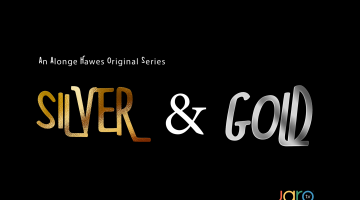



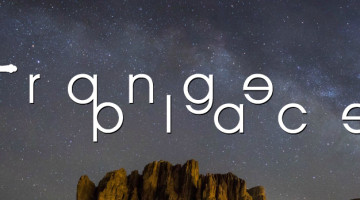
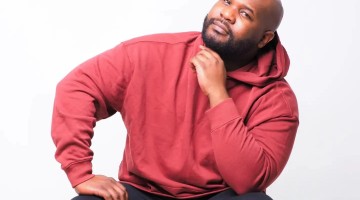
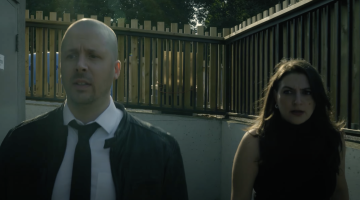
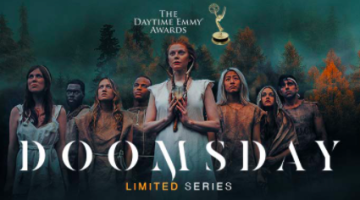

No Comment